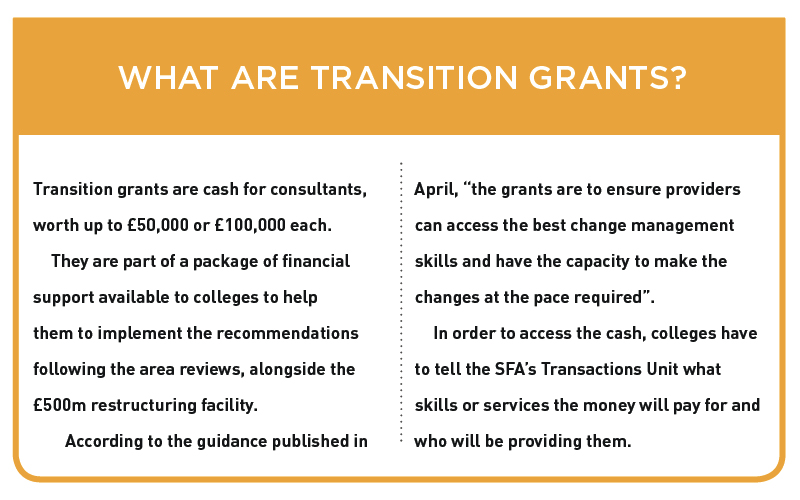If colleges wish to continue to deliver apprenticeships, they will need to adapt quickly, writes Teresa Frith
We are sitting in the middle of a maelstrom of reform in apprenticeships. But what should be at the forefront of our minds is that whatever apprenticeships we provide, they must be high quality. We will be doing a disservice to all apprentices and employers if we chase the government’s target of three million new apprenticeships by 2020 without keeping in mind that this must work for them first and foremost. Despite concerns about a lack of clarity in implementing the reforms, one thing is clear: we all still believe apprenticeships are a significant part of the solution for improving skills in the UK.
Colleges have always been apprenticeship providers, but this delivery has been part of a wide range of education and training opportunities for the local community. Their apprenticeship provision tends to be reflective of what might be called the ‘harder markets’: small businesses that are unlikely to add profit to the college and need significant support; students who are harder to place; sectors where apprenticeship training is expensive to deliver.
Obviously there are exceptions, but well over half of English college provision is delivered to businesses who take only one or two apprentices; on top of this, over 50 per cent of all apprenticeship provision in some key STEM-based areas is delivered by colleges. Colleges have spent a lot of time and energy ensuring that they can be the ‘second (or more) chance saloon’ for the people they serve and that they are accessible to all employers, picking up activity that does not appeal to other types of provider.
Colleges by now recognise that the current reforms focus on the needs of employers, and that the approach that is being encouraged is a commercial one. If a college wishes to continue to deliver apprenticeships, they
will need to adapt quickly to this new approach. To continue to train apprentices who are at a disadvantage, they will need to charge what it actually costs to deliver, or find some money from elsewhere; disadvantage uplifts, and other fair-yet-complicated aspects of the existing funding methodologies, are going.
If a college needs to support a micro business through the whole process of creating an apprenticeship, filling the vacancy then running the programme, they will need to charge the employer what it costs to do this, or find money from elsewhere. So from a practical, financial perspective, colleges need to adapt and find a sustainable delivery strategy.
The approach that is being encouraged is a commercial one
It is hard to see how such a strategy will allow them to continue to work with employers that need a significant time investment prior to and during delivery, however, as well as people who are further away from the job market. This is why one of AoC’s recommendations in its autumn statement submission is for apprenticeship funding to retain a factor to support those from low-income families. It is hard to believe that all this is the genuine intent of the reforms, but it currently remains the reality of the implementation plans.
So in which markets might colleges be seeking to deliver more apprenticeships? Just like ‘employers’, ‘colleges’ are not a homogenous group; they will respond and adapt in myriad ways.
It seems sensible for colleges to play to their strengths and likely that we will see elements of specialisms being introduced. In line with employer demand, we can expect that a significant amount of work might shift from the ‘entry into work’ apprenticeship market to the ‘progression in work’ apprenticeship market.
But all this is speculation; we will have to wait and see what happens after the introduction of the new apprenticeship funding system on May 1, 2017. In the meantime, AoC will continue to work with the government to ensure that apprenticeships do not become a ‘cash cow’ for profiteers, but continue to provide a genuine learning experience for students and achieve real productivity gains for employers and the UK.
There will be forums on making the apprenticeship agenda work for your college at the AoC Conference (15-17 November)






